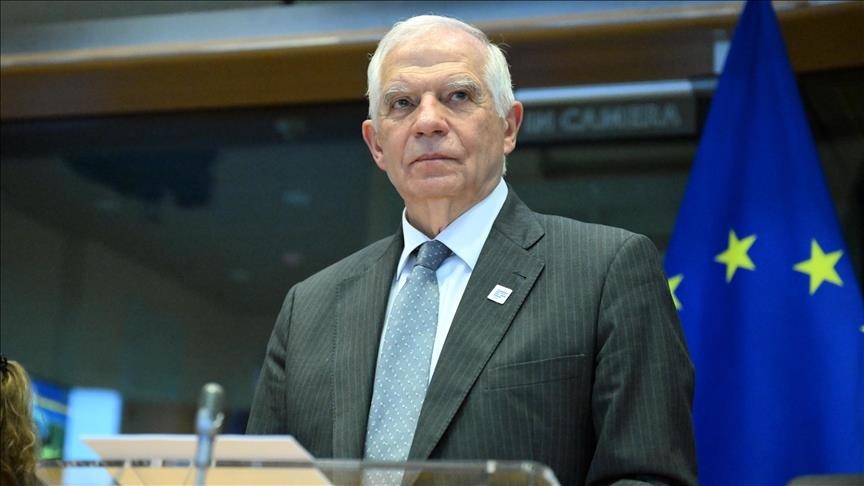EU's Borrell calls for reinforcement of UNIFIL, Lebanese army amid escalating tensions
'Lebanese army has to be reinforced, and once there is a cease-fire, the Lebanese army has to deploy in the south,' says EU foreign policy chief

GENEVA
The EU foreign policy chief on Thursday called for an immediate reinforcement of Lebanon's army and the UN peacekeeping mission in the country (UNIFIL) amid the ongoing conflict between Israel and the Lebanese group Hezbollah.
Josep Borrell's remarks came after his intervention at the Lebanon aid conference held in Paris.
Borrell condemned the recent attacks on UNIFIL forces, saying: "We know who is attacking UNIFIL. I've been watching videos where it's clear that Israeli Defense Forces are attacking UNIFIL, and it is completely unacceptable."
Calling for stronger international support for the peacekeeping mission, he also called for urgent support for the Lebanese army.
"The Lebanese army has to be reinforced, and once there is a cease-fire, the Lebanese army has to deploy in the south," he said.
He noted that the Lebanese army plans to increase its troop numbers by 6,000 but emphasized that they need significant international assistance to achieve this.
The EU has committed €20 million (nearly $21.6 million) in aid to the Lebanese army this year, he said, with an additional €40 million planned for 2025.
Borrell added that nearly €80 million would be donated for humanitarian aid to Lebanon.
"The Lebanese army needs a lot of support. We want them to be able to safeguard the borders and the sovereignty of their country," he said. "They have to be better trained and better equipped."
Urgent need for immediate cease-fire
"The Lebanese people are suffering a lot today due to the Israeli attacks in response to Hezbollah's actions, and this is creating an unbearable amount of civilian casualties and total destruction of the country," Borrell said.
He condemned what he described as a disproportionate response from Israel, stressing the need for international law to be respected by all parties in the region.
"There is no proportionality between the attacks and the casualties," he noted.
The foreign policy chief outlined a seven-point plan to address the crisis, with the "first and most urgent" step being an immediate cease-fire.
"If there is not a cease-fire, nothing else will work," he said, adding that efforts to end the violence must be accompanied by measures to fight impunity and ensure that all actors respect international law.
He also stressed the importance of the Lebanese political leadership in resolving the internal political deadlock, calling on the country's leaders to elect a president as a crucial step toward national stability.
Israel has mounted a huge air campaign in Lebanon since last month against what it says are Hezbollah targets in an escalation from a year of cross-border warfare between Israel and the group since the start of Israel’s brutal offensive on Gaza.
At least 2,574 people have been killed and more than 12,000 injured in Israeli attacks since October last year, according to Lebanese health authorities.
Israel expanded the conflict on Oct. 1 this year by launching a ground assault into southern Lebanon.
Anadolu Agency website contains only a portion of the news stories offered to subscribers in the AA News Broadcasting System (HAS), and in summarized form. Please contact us for subscription options.







